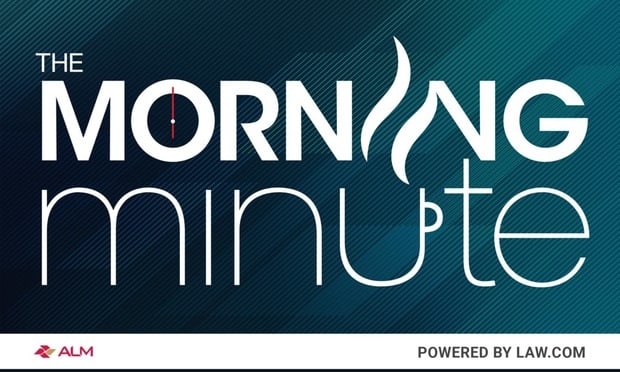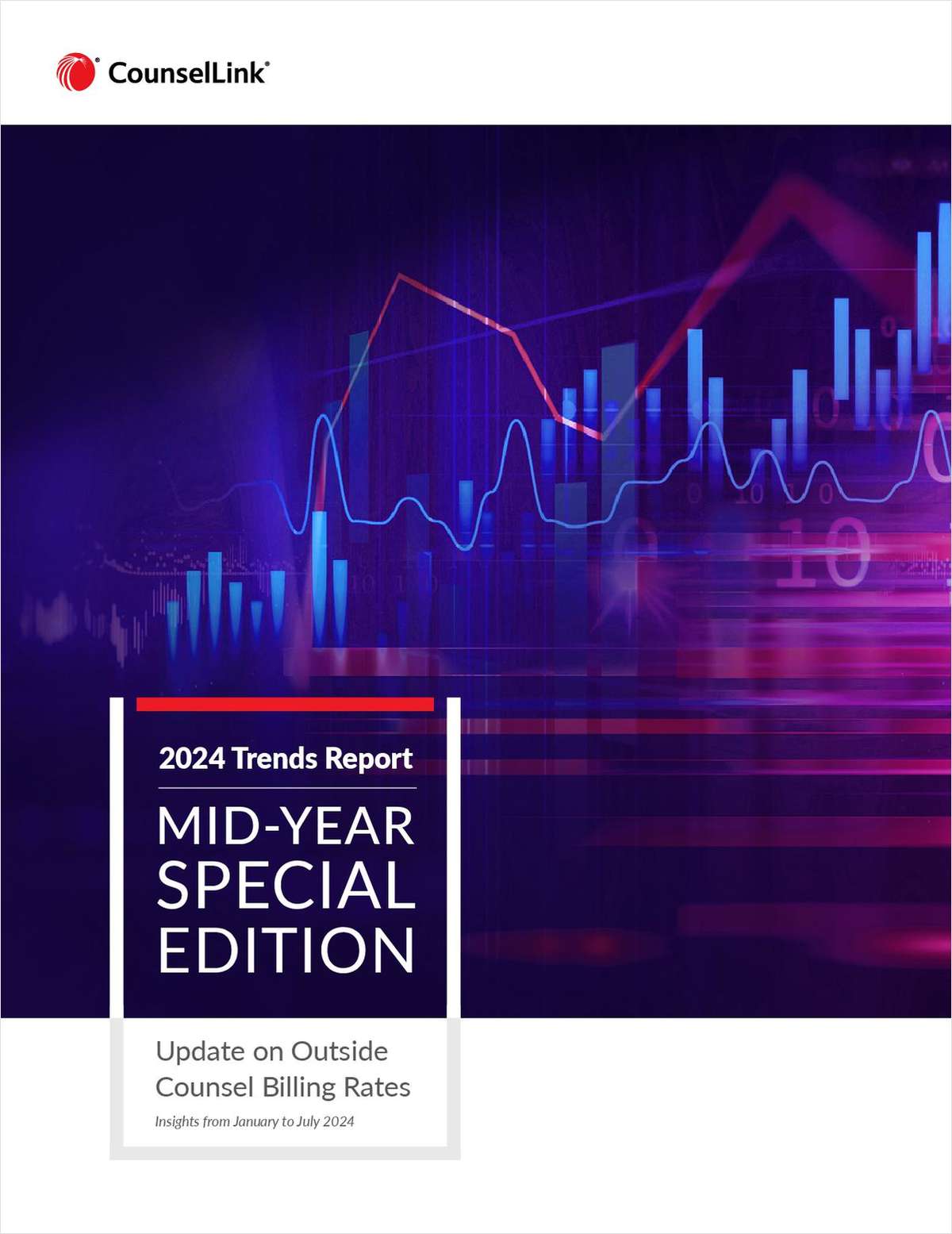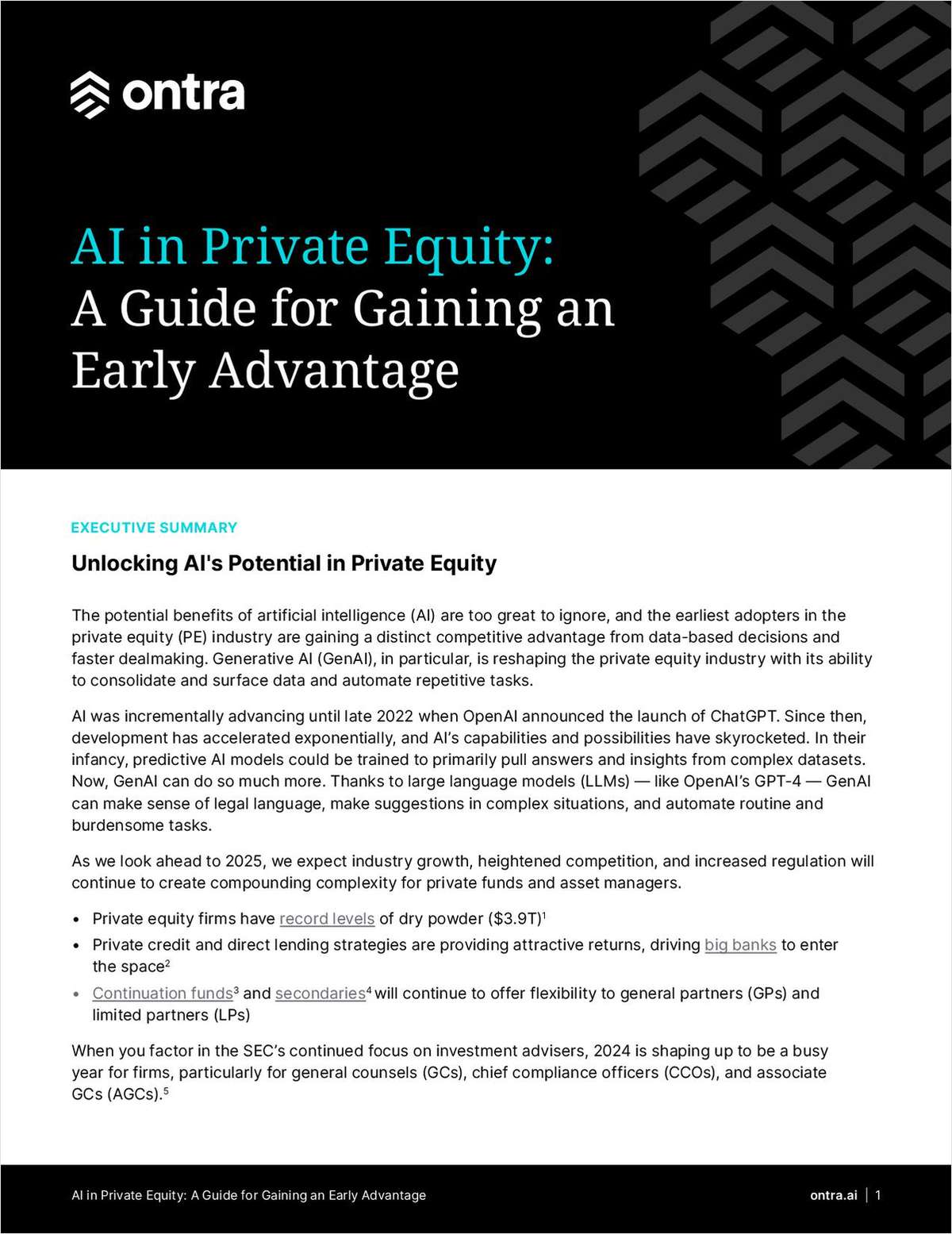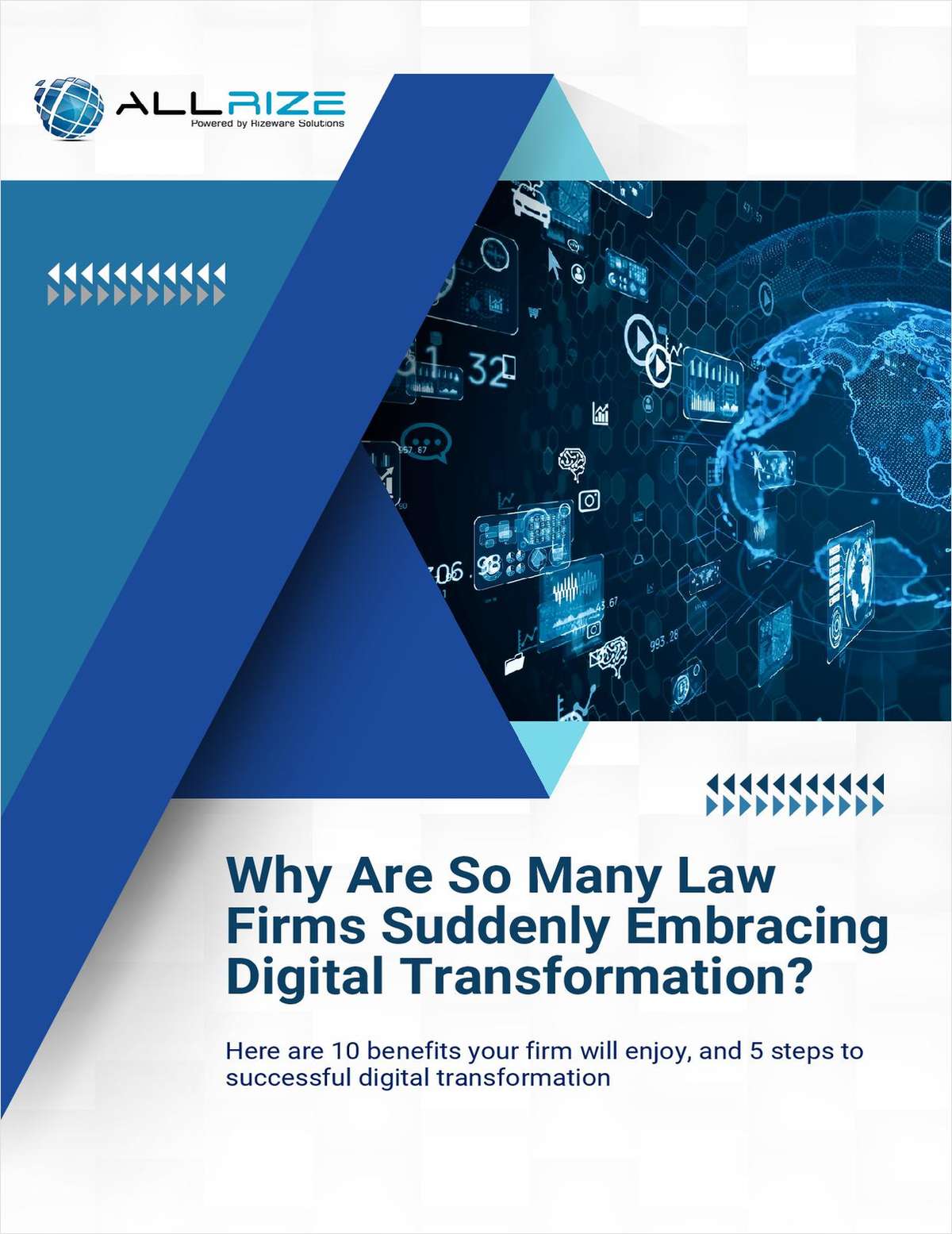Are Big Bankruptcy Rates About to Bump Up Again?; Law Firm-Landlord Battles Rage On; Parties Spar Over Consolidating Business Interruption Claims: The Morning Minute
The news and analysis you need to start your day.
July 31, 2020 at 06:00 AM
4 minute read
Want to get this daily news briefing by email? Here's the sign-up.
|
WHAT WE'RE WATCHING
TAKING A HIKE - If there's one practice area in which lawyers can still get away with charging $2,000 an hour right now, it's bankruptcy and restructuring. In fact, big firms like Kirkland & Ellis and Weil, Gotshal & Manges are doing just that. And even if rates increase again in the near term, some law firm and restructuring observers told Samantha Stokes they don't expect too much pushback from clients. But is another rate hike really on the horizon? That's debatable. Mark Medice, a law firm management consultant at LawVision who focuses on financial performance and data science, told Stokes that, based on how firms behaved during the Great Recession, he doesn't think there will be an annual adjustment to bankruptcy billing rates in 2020. But Lynn LoPucki, a restructuring law professor at UCLA Law, said there are few stakeholders in bankruptcy court that will keep rate increases in check: "If you're a debtor, you're not going to control the fees because you're spending other people's [the creditors'] money."
SPACE JAM - Law firms across the country are advancing arguments that the force majeure clauses in their clients' pre-COVID contracts contemplated a global pandemic. Meanwhile, several firms are making similar arguments about their own contracts—specifically their rent agreements. As Christine Simmons reports, Simpson Thacher & Bartlett is suing its New York landlord, alleging it has refused to acknowledge the law firm's rights to rent abatement, leading to $8 million in damages. Meanwhile, Dylan Jackson reports that Jenner & Block has fired back in similar ongoing litigation with the landlord of its Chicago office space, urging a judge to keep in the court record a key affidavit that bolster's the firm's argument.
COME TOGETHER RIGHT NOW? - Are all COVID-19 business interruption claims created equal? That question was up for heated debate yesterday morning. As Amanda Bronstad reports, 15 lawyers from across the country sparred before the Judicial Panel on Multidistrict Litigation over whether sprawling business interruption litigation should be consolidated. The all-day teleconference hearing addressed cases brought against StubHub over allegedly unrefunded tickets to canceled events, and numerous lawsuits against JPMorgan Chase, Bank of America and other banks over the processing of PPP loans. Plaintiffs lawyers said keeping the suits separate would be "incredibly inefficient," while defense counsel called consolidation "a nightmare." But one thing they could all agree on? A decision needs to be made ASAP.
|
EDITOR'S PICKS
Ogletree Adds $10K Bonus for Associates Hitting 1,700 Hours This Year By Meredith Hobbs
Social Media Company Sues Facebook for 'Russia State-Controlled Media' Label By Alaina Lancaster
Baker Botts, Cadwalader to Restore COVID-19 Pay Cuts By Brenda Sapino Jeffreys
Do General Counsels Need to Take More 'Me Time' to Be Stronger Leaders? By Phillip Bantz
|
WHILE YOU WERE SLEEPING
LOCK IT IN - Freshfields Bruckhaus Deringer thought long and hard about moving from lockstep compensation to a model that would have accelerated the rise of high-performing junior partners. Ultimately, however, it decided to stay the course, Varsha Patel reports. In an interview with Law.com International in July managing partner Stephan Eilers said the firm is "happy and content" with the 2018 reforms to the lockstep and said: "We are not expecting further changes to our lockstep model."
|
WHAT YOU SAID
"Stay in the majority; stay in control."
— Former U.S. Solicitor General and Federal Appellate Judge Kenneth Starr, describing SCOTUS Chief Justice John Roberts' voting behavior in the October 2019 term.
➤➤ Sign up here to receive the Morning Minute straight to your inbox.
NOT FOR REPRINT
© 2024 ALM Global, LLC, All Rights Reserved. Request academic re-use from www.copyright.com. All other uses, submit a request to [email protected]. For more information visit Asset & Logo Licensing.
You Might Like
View All
'You Don't Know Everything': GCs Say Success Leading Nonlegal Functions Starts With Humility
5 minute read


In-House Leaders Trying to Contain Political Divisiveness Face Maze of Challenges
5 minute readLaw Firms Mentioned
Trending Stories
Who Got The Work
Dechert partners Andrew J. Levander, Angela M. Liu and Neil A. Steiner have stepped in to defend Arbor Realty Trust and certain executives in a pending securities class action. The complaint, filed July 31 in New York Eastern District Court by Levi & Korsinsky, contends that the defendants concealed a 'toxic' mobile home portfolio, vastly overstated collateral in regards to the company's loans and failed to disclose an investigation of the company by the FBI. The case, assigned to U.S. District Judge Pamela K. Chen, is 1:24-cv-05347, Martin v. Arbor Realty Trust, Inc. et al.
Who Got The Work
Arthur G. Jakoby, Ryan Feeney and Maxim M.L. Nowak from Herrick Feinstein have stepped in to defend Charles Dilluvio and Seacor Capital in a pending securities lawsuit. The complaint, filed Sept. 30 in New York Southern District Court by the Securities and Exchange Commission, accuses the defendants of using consulting agreements, attorney opinion letters and other mechanisms to skirt regulations limiting stock sales by affiliate companies and allowing the defendants to unlawfully profit from sales of Enzolytics stock. The case, assigned to U.S. District Judge Andrew L. Carter Jr., is 1:24-cv-07362, Securities and Exchange Commission v. Zhabilov et al.
Who Got The Work
Clark Hill members Vincent Roskovensky and Kevin B. Watson have entered appearances for Architectural Steel and Associated Products in a pending environmental lawsuit. The complaint, filed Aug. 27 in Pennsylvania Eastern District Court by Brodsky & Smith on behalf of Hung Trinh, accuses the defendant of discharging polluted stormwater from its steel facility without a permit in violation of the Clean Water Act. The case, assigned to U.S. District Judge Gerald J. Pappert, is 2:24-cv-04490, Trinh v. Architectural Steel And Associated Products, Inc.
Who Got The Work
Michael R. Yellin of Cole Schotz has entered an appearance for S2 d/b/a the Shoe Surgeon, Dominic Chambrone a/k/a Dominic Ciambrone and other defendants in a pending trademark infringement lawsuit. The case, filed July 15 in New York Southern District Court by DLA Piper on behalf of Nike, seeks to enjoin Ciambrone and the other defendants in their attempts to build an 'entire multifaceted' retail empire through their unauthorized use of Nike’s trademark rights. The case, assigned to U.S. District Judge Naomi Reice Buchwald, is 1:24-cv-05307, Nike Inc. v. S2, Inc. et al.
Who Got The Work
Sullivan & Cromwell partner Adam S. Paris has entered an appearance for Orthofix Medical in a pending securities class action arising from a proposed acquisition of SeaSpine by Orthofix. The suit, filed Sept. 6 in California Southern District Court, by Girard Sharp and the Hall Firm, contends that the offering materials and related oral communications contained untrue statements of material fact. According to the complaint, the defendants made a series of misrepresentations about Orthofix’s disclosure controls and internal controls over financial reporting and ethical compliance. The case, assigned to U.S. District Judge Linda Lopez, is 3:24-cv-01593, O'Hara v. Orthofix Medical Inc. et al.
Featured Firms
Law Offices of Gary Martin Hays & Associates, P.C.
(470) 294-1674
Law Offices of Mark E. Salomone
(857) 444-6468
Smith & Hassler
(713) 739-1250









